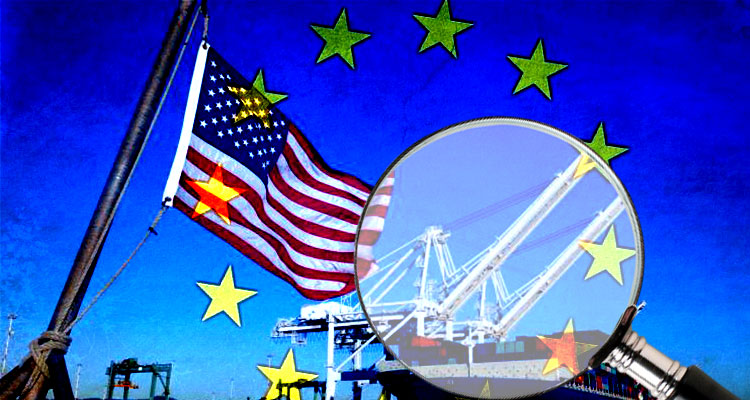The investigation into the alleged unfair and discriminatory trade practices by the United States by the European Commission began by the EC submitting a list of questions to several leading U.S. officials. The intent of these questions is to discover all the facts behind the allegations made against the U.S. by several European gambling companies as well as some of the countries belonging to the World Trade Organization. These allegations state that the United States was discriminatory in its enforcement and punishment of European gambling concerns after the passage of a bill known as UIGEA in 2006 as well as in violation of trade agreements made with several countries.
Several of the European companies involved are part of the Remote Gaming Association, which is the organization that lodged the complaint with the commission on behalf of its members that are affected. The RGA states that European companies are being unfairly targeted by the U.S. gambling laws while protecting U.S. based gambling concerns such as horse-racing. Not only are the companies faced with loss of millions of dollars in revenue, but they still have to fear retroactive prosecution if they visit the United States for any reason. Since the Department of Justice continues to deny that the UIGEA made any gambling activity illegal, they say that they have the right to prosecute for illegal activity prior to the act’s passage.
Technically, the UIGEA does not state what constitutes unlawful illegal internet gambling; rather, it is an instrument of enforcement, or is supposed to be. This act called upon banks and other financial institutions to block any transaction from “unlawful internet gambling” while never actually naming which activities those might be. Instead, the law refers to existing state laws of which many are ambiguous at best. The end result is that no one really knows what unlawful internet gambling is but you can still get prosecuted if the Department of Justice catches you doing it.
The nonchalant attitude of the U.S. Trade Representative, Susan Schwab, is exacerbating the situation as the EC sees the U.S. as shrugging off the questions with a completely dismissive approach. Schwab said the queries were based on “mistaken assumptions” since the law did not change what was legal or illegal. She continued by saying that there was “no basis for any allegation of discriminatory enforcement of U.S. gambling laws”. Schwab has failed to clarify the distinction made by the UIGEA that does enable online bets with U.S. horse racing and lottery websites while banning transactions made with European companies.
“The cumulative effect of U.S. WTO-related actions over the past year have forced the European Union to take this dramatic step. The line of inquiry opened by the questionnaire could reveal that the U.S. is engaging in unfair, discriminatory, and selective prosecution of European online gaming operators,” said Naotaka Matsukata, a senior advisor to Alston & Bird, LLP.
“If the E.U. takes the nuclear option and brings the U.S. to the WTO, serious damage would be inflicted on the bilateral relationship at a delicate time in transatlantic relations,” added Matsukata, in an SSIGI press release.
“Rather than taking this risk, the U.S. Trade Representative should work with Congress, as the United States Constitution instructs, to resolve the dispute by adopting Congressman Frank’s Internet Gambling Regulation and Enforcement Act to bring the U.S. into WTO compliance.”
The proposal that Matsukata refers to is known as H.R. 2046 which was introduced by Representative Barney Frank last year. Frank’s proposal suggests the internet gambling industry to require licensing and regulation rather than criminalizing gambling activities. The EU Trade Commissioner, Peter Mandelson, has expressed his support of Frank’s proposal by saying that it is a “fair-minded, commonsense approach” to internet gambling.



